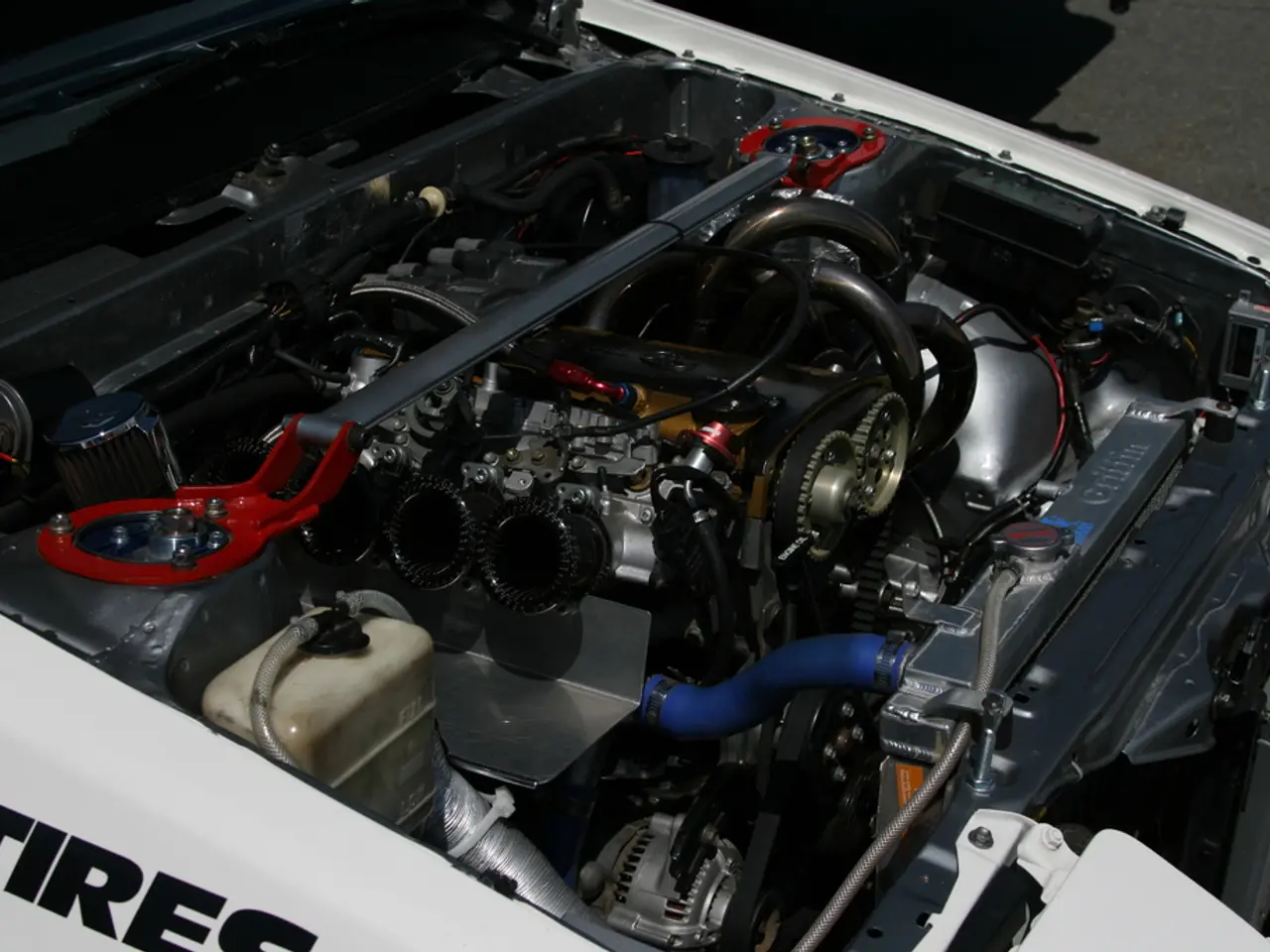Nearly 1.45 million electric vehicles, powered solely by batteries, expected to hit the roadways in 2024
The share of battery-only electric cars (BEVs) among all new vehicle registrations in the European Union (EU) has been steadily increasing over the past few years, marking a significant shift towards sustainable transportation.
Until 2018, BEVs accounted for less than 1% of all new registrations. However, this figure began to change in 2019, and by 2020, the share had risen to 5.3%. In 2021, this figure increased to 9.0%, and in 2024, it reached 13.6%, albeit a slight decrease from the 14.6% recorded in 2023.
In 2024, a total of 1.45 million new BEV passenger cars were registered in the EU, representing a 32.4% increase compared to the previous year. Despite this growth, the total number of new BEVs showed a decrease of 6.8% compared to 2023.
Countries like Denmark, Malta, and Sweden led the way in BEV adoption, with Denmark having the highest share of BEVs in new registrations in 2024, at 51.3%. Malta followed closely with a share of 37.7%, and Sweden had a share of 34.9%. On the other hand, countries such as Croatia, Poland, and Slovakia had the lowest shares, with Croatia at 1.8%, Poland at 3.0%, and Slovakia at 2.4%.
The growth of BEVs is not limited to passenger cars. In 2024, the number of new road tractors with BEV power increased by 35.5% compared to the previous year, and the number of new heavy lorries with BEV power saw a 39.7% increase. The number of new motor coaches and buses with BEV power also increased by 28.2% during the same period.
However, plug-in hybrid cars recorded a decline of 6.5% in 2024. This trend suggests a growing preference for fully electric vehicles over hybrid ones.
The forecast for BEV registrations in the EU indicates steady growth in 2025 and beyond, supported by stricter CO2 emission standards and expanding production capacity. However, uncertainties remain regarding the pace of electrification and supply chain challenges.
By the first half of 2025, BEVs are expected to account for around 17-18% of new car registrations in Europe, increasing to approximately 25% of new sales in 2025 and close to 60% by 2030. These figures reflect a significant acceleration from the 20% EV market share plateaued in 2024.
However, realizing these forecasts depends heavily on overcoming industrial and supply chain challenges, as well as sustained supportive policies. The EU aims to increase its domestic battery production capacity dramatically by 2030, but only a fraction of the announced capacity is currently considered low-risk. The forecast is that Europe might cover between 24% (if only low-risk projects materialize) and 52% (including medium-risk projects) of its battery cell demand by 2030, falling short of the EU’s target of 40% sufficiency.
In conclusion, the shift towards battery-only electric vehicles in the EU is gathering momentum, with Denmark, Malta, and Sweden leading the way. However, the pace of electrification and the ability to meet domestic battery demand remain challenges that need to be addressed to realize the forecasted growth in BEV registrations.
- The increasing adoption of battery-only electric cars (BEVs) in the European Union (EU) reflects a significant shift in the automotive industry, particularly in finance regulations that promote sustainable transportation.
- The growth of BEVs is not only limited to passenger cars; the number of new road tractors, heavy lorries, motor coaches, and buses with BEV power is also increasing, marking a transition in the technology sector.
- As the demand for electric-vehicles (EVs) increases, the EU aims to boost its domestic battery production capacity to cater to this demand, impacting both the technology and automotive industries.
- The rise in BEV registrations is expected to have a significant impact on lifestyle trends, with over 60% of new car sales in Europe predicted to be electric vehicles by 2030.




